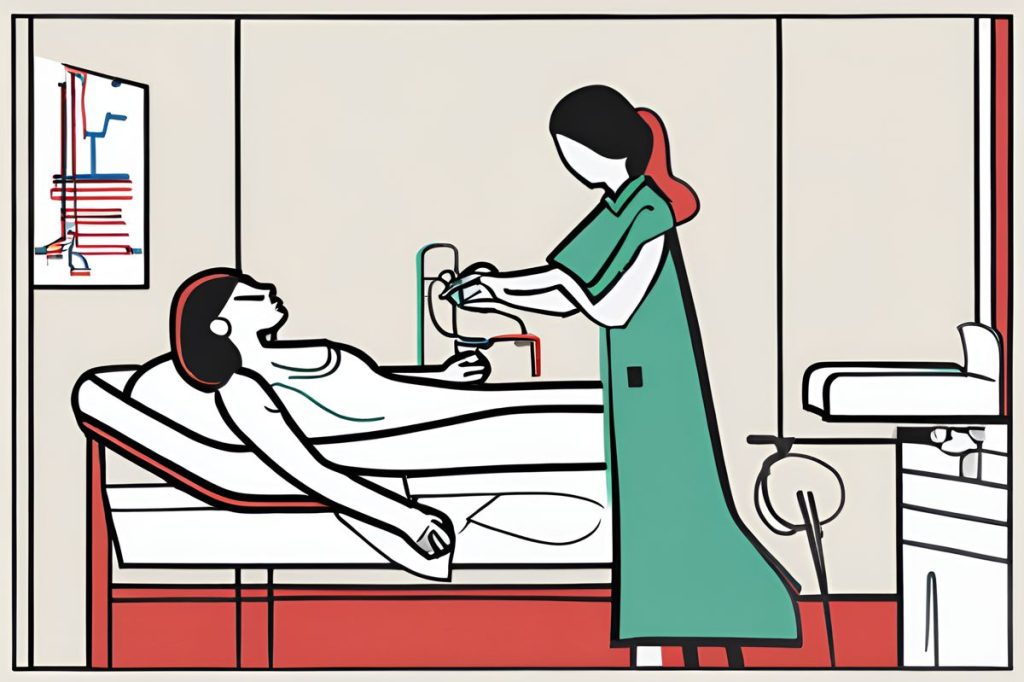Thyroid cancer poses a significant threat to women’s health, particularly in Cyprus where it ranks as the second most common cancer among women. Early detection through self-exams and medical check-ups is crucial, as symptoms can include a neck lump, hoarseness, and low energy levels. Taking proactive steps to mitigate risks, such as maintaining a healthy lifestyle and monitoring for symptoms, can help in preventing and treating this disease effectively.
What are the symptoms and risk factors of thyroid cancer?
Symptoms of thyroid cancer can include a nodule or lump in the neck, persistent hoarseness, and a painless throat mass. Risk factors consist of environmental influences, genetic predisposition, gender (especially in women), low iodine intake, and a history of breast cancer. Regular self-exams and medical check-ups are essential for early detection and prevention.
Understanding the Prevalence
Thyroid cancer represents a significant health concern, particularly for women in Cyprus, where it ranks as the second most common cancer among this demographic and the sixth among men. Notably, individuals aged between 35 and 59 are most likely to be diagnosed with this disease. Fortunately, when caught early, thyroid cancer is highly treatable, thereby underlining the critical nature of early detection.
The prevalence of thyroid cancer has been on the rise globally. Medical experts attribute this to improved diagnostic techniques that are now capable of identifying smaller cancerous growths which, in earlier times, might have gone unnoticed. The higher incidence rate demands increased awareness and proactive health management.
Recognizing the Symptoms
While thyroid cancer is often treatable, it is not without its challenges, including the toll it takes on mental health. Patients may experience anxiety, depression, and mood swings, in addition to physical symptoms like fatigue and low energy levels. Such emotional struggles necessitate a comprehensive approach to patient care, extending beyond mere medical treatment to include psychological support.
The initial sign of thyroid cancer can be a nodule or lump in the neck, which warrants further medical evaluation. It is essential for individuals to engage in self-examination and to ask for a throat check when visiting a healthcare provider. Other symptoms, such as persistent hoarseness and a painless throat mass, should also prompt a medical consultation, especially if they persist for several weeks.
Risk Factors and Prevention
Several factors can elevate the risk of developing thyroid cancer, including environmental influences, genetic predisposition, and specific dietary patterns like low iodine intake. Gender plays a notable role, with women being more susceptible. A history of breast cancer can also slightly increase the likelihood of a thyroid cancer diagnosis.
Mitigating these risks involves a variety of strategies, from ensuring adequate dietary iodine to monitoring for potential symptoms. Regular medical check-ups and awareness about one’s family medical history are vital components of a preventive health regimen.
Advancements in Treatment
Treatment strategies for thyroid cancer have evolved over the years, with ongoing research contributing to more effective and less invasive options. Surgical techniques, radioactive iodine therapy, and targeted drug therapies have enhanced survival rates and quality of life for patients. It’s important for those diagnosed to discuss the array of treatment possibilities with their healthcare providers.
Public health initiatives are critical in promoting awareness and encouraging routine screenings. By prioritizing early detection and taking a holistic view of patient care, the impact of thyroid cancer can be significantly reduced, allowing those affected to lead fulfilling lives post-diagnosis.
What are the symptoms and risk factors of thyroid cancer?
Symptoms of thyroid cancer can include a nodule or lump in the neck, persistent hoarseness, and a painless throat mass. Risk factors consist of environmental influences, genetic predisposition, gender (especially in women), low iodine intake, and a history of breast cancer. Regular self-exams and medical check-ups are essential for early detection and prevention.
What is the prevalence of thyroid cancer, particularly among women in Cyprus?
Thyroid cancer ranks as the second most common cancer among women in Cyprus and the sixth among men. Individuals aged between 35 and 59 are most likely to be diagnosed with this disease. Early detection is crucial as thyroid cancer is highly treatable when caught early.
What are the challenges associated with thyroid cancer, including symptoms and mental health impacts?
Thyroid cancer can not only present physical symptoms like fatigue and hoarseness but also impact mental health, leading to anxiety, depression, and mood swings. Comprehensive patient care should include psychological support in addition to medical treatment.
How can individuals mitigate the risk of developing thyroid cancer and what advancements have been made in treatment?
Mitigating the risk of thyroid cancer involves maintaining a healthy lifestyle, monitoring for symptoms, ensuring adequate dietary iodine, and being aware of family medical history. Treatment options have evolved to include surgical techniques, radioactive iodine therapy, and targeted drug therapies, leading to improved survival rates and quality of life for patients.

